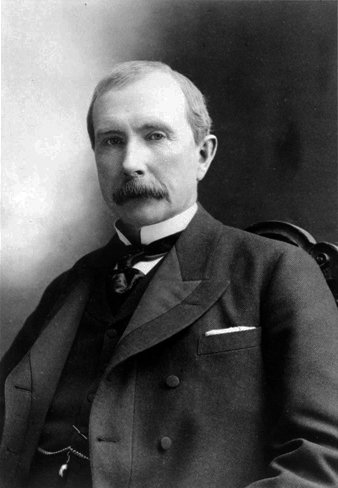| << Chapter < Page | Chapter >> Page > |
It was during the eighteenth and nineteenth centuries of the Industrial Revolution that sociology was born. Life was changing quickly and the long-established traditions of the agricultural eras did not apply to life in the larger cities. Masses of people were moving to new environments and often found themselves faced with horrendous conditions of filth, overcrowding, and poverty. Social scientists emerged to study the relationship between the individual members of society and society as a whole.
It was during this time that power moved from the hands of the aristocracy and “old money” to business-savvy newcomers who amassed fortunes in their lifetimes. Families such as the Rockefellers and the Vanderbilts became the new power players and used their influence in business to control aspects of government as well. Eventually, concerns over the exploitation of workers led to the formation of labor unions and laws that set mandatory conditions for employees. Although the introduction of new technology at the end of the nineteenth century ended the industrial age, much of our social structure and social ideas—like family, childhood, and time standardization—have a basis in industrial society.

Information societies , sometimes known as postindustrial or digital societies, are a recent development. Unlike industrial societies that are rooted in the production of material goods, information societies are based on the production of information and services.
Digital technology is the steam engine of information societies, and computer moguls such as Steve Jobs and Bill Gates are its John D. Rockefellers and Cornelius Vanderbilts. Since the economy of information societies is driven by knowledge and not material goods, power lies with those in charge of storing and distributing information. Members of a postindustrial society are likely to be employed as sellers of services—software programmers or business consultants, for example—instead of producers of goods. Social classes are divided by access to education, since without technical skills, people in an information society lack the means for success.
Societies are classified according to their development and use of technology. For most of human history, people lived in preindustrial societies characterized by limited technology and low production of goods. After the Industrial Revolution, many societies based their economies around mechanized labor, leading to greater profits and a trend toward greater social mobility. At the turn of the new millennium, a new type of society emerged. This postindustrial, or information, society is built on digital technology and nonmaterial goods.
In which type or types of societies do the benefits seem to outweigh the costs? Explain your answer, and cite social and economic reasons.
Is Gerhard Lenski right in classifying societies based on technological advances? What other criteria might be appropriate, based on what you have read?
The Maasai are a modern pastoral society with an economy largely structured around herds of cattle. Read more about the Maasai people and see pictures of their daily lives here: (External Link)
Immigration and Refugee Board of Canada. 2005. “Israel: Treatment of Bedouin, Including Incidents of Harassment, Discrimination or Attacks; State Protection (January 2003–July 2005)”, Refworld, July 29. Retrieved February 10, 2012 ( (External Link) ).
Kjeilen, Tore. “Bedouin.” Looklex.com. Retrieved February 17, 2012 ( (External Link) ).
University of Michigan. n.d. "The Curse of Oil in Ogoniland". Retrieved January 2, 2015 (http://www.umich.edu/~snre492/cases_03-04/Ogoni/Ogoni_case_study.htm).

Notification Switch
Would you like to follow the 'Introduction to sociology 2e' conversation and receive update notifications?